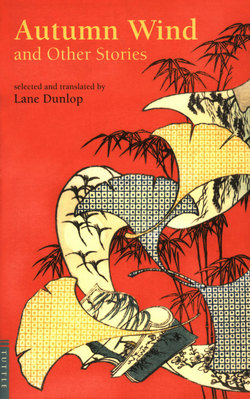Читать книгу Autumn Wind & Other Stories - Lane Dunlop - Страница 7
На сайте Литреса книга снята с продажи.
ОглавлениеTranslator's
Preface
These stories span sixty years of twentieth-century Japanese literature. Between the bittersweet, nostalgic evocation of childhood in Nagai Kafu's "The Fox," set against a background of a still largely traditional Japan, and the alienated, thoroughly modern world of Watanabe Jun'ichi's "Invitation to Suicide" is a development comparable in range and scope to that of any world-class literature. During these years Japan, after centuries of seclusion, adjusted to its full-scale entry into the world, to the successive traumatic shocks of the Great Earthquake of 1923 and the catastrophic defeat of World War II, and to the phoenix-like revival of its economy.
Most of the writers represented in this selection are what might be called standard authors. Their work, all or some of it, continues to be in print decade after decade. Kawabata Yasunari, Japan's only Nobel Prize winner for literature, needs almost no introduction to Western readers; on the other hand, Juichiya Gisaburo, who is perhaps remembered for the one story included in this selection, must be all but unknown even to Japanese. The anthology includes the famous and the unfamiliar, writers known to English readers and others whose work has not been translated previously. Most of the stories themselves are new to English. Those that are not exist only in translations that have been out of print for so long as to be well nigh inaccessible to all but the most devoted student.
It may be said that the dominant tone of Japanese writing is one of characteristically understated sobriety. Whether this is due to the nature of the language, the Japanese temperament, or the realistic mode that has prevailed in the literature is beyond the ambition of this preface. But having once noted it, one must also note the variety of modulations this voice is capable of. In this selection alone are the poignant yearning for the past of Nakayama Gishu's "Autumn Wind," the buoyant cynicism of Sakaguchi Ango's "One Woman and the War," the sexual knowledgeability of Kurahashi Yumiko's "Ugly Demons"—perhaps as many variations as there are writers. It is the translator's sincere hope that some of the pleasure afforded him by the perusal and translation of these stories will be conveyed to, and shared with, the reader.
